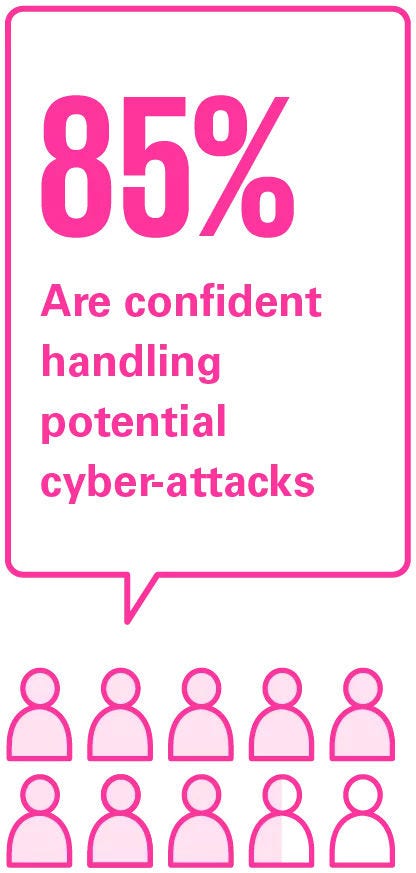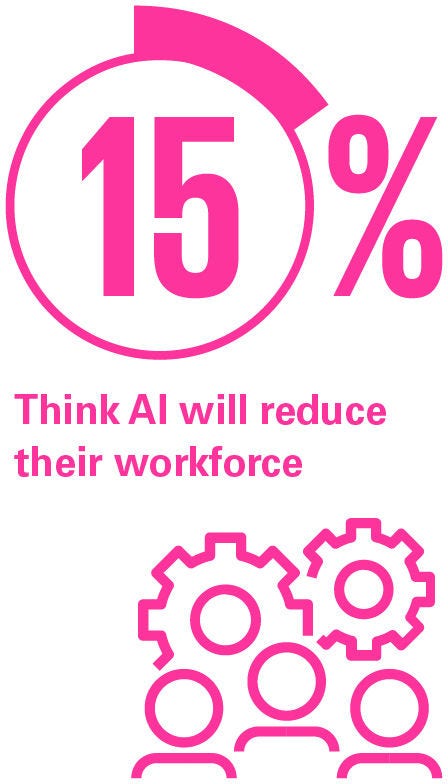Resilience will be critical as businesses adapt to sustainability, cybersecurity, digital transformation, and AI issues. Less than half (48 percent) expressed concerns about potential cyber security threats affecting their business continuity, a notable decrease from 93 percent in 2023, suggesting growing confidence in their cyber defence measures. Furthermore, a majority (74 percent) reported their company had never experienced a cyber security attack.
Turning to cybersecurity, our research revealed a mix of preparedness and concerns among domestic companies and entrepreneurs, with most (84 percent) confident handling potential cyber-attacks.
Dani Michaux, Dublin-based EMA Cyber Lead at KPMG, says, “With increasingly advanced technology in the hands of cybercriminals, attacks are now inevitable. Accepting that you are not yet fully prepared and that more work is needed is the first step. Management teams should focus on business continuity for when an attack does occur to ensure that they can continue to support their employees and customers.”




